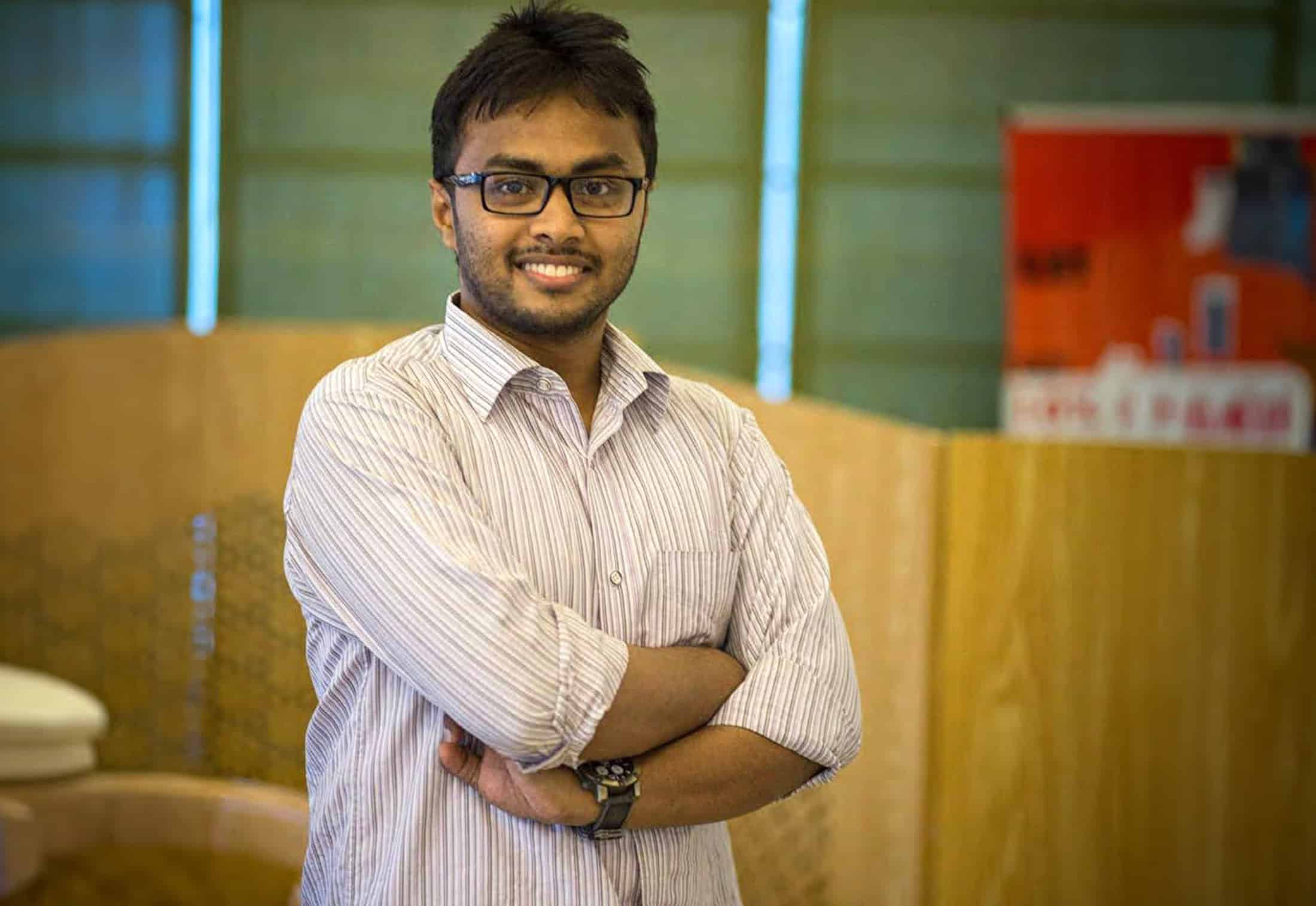
Muhammad Rafiul Abdussami’s journey in nuclear engineering
The NERS graduate student has a keen interest in sustainable energy systems.

The NERS graduate student has a keen interest in sustainable energy systems.
NERS graduate student Muhammad Rafiul Abdussami—aka Rafiul—was a senior at the Islamic University of Technology in Bangladesh when he embarked on his journey into nuclear engineering. It was 2016 and Bangladesh had just announced the construction of its first nuclear power plant. This milestone aimed to establish a carbon-free and reliable energy infrastructure, sparking Rafiul’s interest in nuclear science and engineering, and leading him to present a poster on the potential of offshore floating nuclear plants in Bangladesh at a national competition. He was named the Champion, an achievement that deepened his passion for nuclear engineering research.
Rafiul first pursued a bachelor degree in Bachelor’s degree in Electrical and Electronic Engineering (EEE) from the Islamic University of Technology (IUT) in Bangladesh, followed by a Master’s degree in Nuclear Engineering at Ontario Tech University in Canada, where he gained significant experience in nuclear-renewable integrated systems. These systems, he believes, have great potential to reduce greenhouse gas emissions, enhance the technical benefits of combining nuclear and renewable energy sources, and lower total system costs. His experience in nuclear systems led him to NERS.
“With all its adept professors and renowned laboratories, I believed NERS would be the best opportunity to fulfill my purpose,” said Rafiul. “I was highly motivated by Professor Todd Allen and Professor Aditi Verma’s research. The research work and activities of Fastest Path to Zero Institute also attracted me because I’m very interested in contributing to building sustainable energy systems.”
Rafiul’s academic journey at the U-M has been marked by supportive mentorship and rigorous coursework, which have enriched his knowledge and skills. Mentors such as Verma, Allen, Associate Professor of Electrical Engineering and Computer Science Johanna Mathieu, and NERS alum Dr. Shannon Bragg-Sitton have played crucial roles in guiding his research and professional development.
Rafiul’s primary research area focuses on the coal-to-nuclear transition and retrofitting, motivated by the environmental impacts of coal-fired power plants and the urgent need for global CO2 emission reductions. His work seeks to leverage existing infrastructure for cleaner energy solutions, contributing to sustainable energy goals.
In his recent publication with the Fastest Path team, “Investigation of potential sites for coal-to-nuclear energy transitions in the United States,” Rafiul identified key factors influencing the feasibility of these transitions, including safety, socioeconomic conditions, and proximity factors. His research emphasizes the importance of a systematic approach in evaluating potential sites, using tools like Fastest Path’s Siting Tool for Advanced Nuclear Development (STAND) to guide policymakers and stakeholders.
Rafiul’s interest in nuclear-renewable hybrid energy systems stems from their potential to enhance energy reliability and sustainability. These systems combine the stable power generation of nuclear plants with the variability of renewables, creating a balanced and resilient energy solution. His publication, “Future Energy Landscapes: Analyzing the Cost-Effectiveness of Nuclear-Renewable Integrated Energy Systems,” addresses the challenges and solutions associated with transitioning from coal power plants to integrated energy systems.
Most recently, Rafiul and Verma published, “Impact of Flexible Advanced Nuclear Reactors on Optimal Planning of Distributed Nuclear Renewable Integrated Energy Systems.” The paper discusses the comparative impact of baseload and flexible nuclear reactors on long-term Nuclear-Renewable (N-R) hybrid system planning simulation and how the total system cost and storage sizing differ. The results indicate that a flexible nuclear reactor can reduce the total annualized cost by approximately 2% and the energy storage sizing by roughly 3% for N-R integrated system planning, compared to a base load reactor. The study provides insights into the operational assumptions (e.g., baseload or flexible operation) to consider during the long-term planning problem simulation of N-R integrated systems. The finding suggests that planning should assume a baseload strategy for nuclear reactors to avoid computation complexities since the cost-benefit difference is minimal for baseload and flexible operation for long-term planning, but understanding the benefits of flexible operation is vital for short-term operational planning.
Looking ahead, Rafiul sees nuclear-renewable hybrid systems playing a significant role in urban energy infrastructures, supported by advancements in Small Modular Reactors (SMRs) and renewable technologies. He emphasizes the importance of technical and financial considerations, including grid stability, cost management, and supportive policies, for the successful adoption of these systems.
Rafiul’s work reflects his dedication to advancing nuclear engineering and sustainable energy solutions, contributing valuable insights and research to the field. As he continues his PhD studies at NERS, he remains focused on exploring innovative approaches to energy transitions, aiming to make a meaningful impact on the global energy landscape.
“I am consistently impressed with Rafiul’s creativity, drive, and hard work. He is asking and finding answers to some of the hardest questions about how we can build cleaner energy systems — and the potential role for nuclear energy in these systems,” noted Verma who is Rafiul’s PhD advisor.
“Rafiul has been a great addition to NERS and Fastest Path, building the technical case for the usefulness of nuclear energy in a clean energy future,” noted Department Chair Todd Allen.
Rafiul’s full publication list is available here.